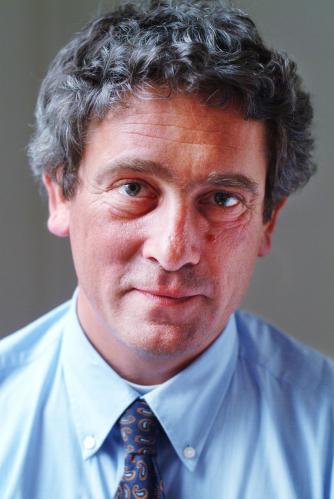
A university in Switzerland has come to the defense of a communications researcher found guilty of plagiarism — and sanctioned after facing additional allegations, including plagiarizing a former Pope.
On Jan. 18, the Swiss newspaper, Ticinonline, published a statement from the University of Lugano in response to recent allegations that Peter J. Schulz had plagiarized from Pope John Paul II (who died in 2005) and the English philosopher, Sir Anthony Kenny, in a 2001 book chapter. The university told the Swiss paper that it will not be opening a new investigation into Schulz.
In response to allegations of plagiarism in 2016, the university investigated and, in August 2016, temporarily suspended Schulz for the 2017 fall semester for misappropriating the work of others. (So far, Schulz has lost three book chapters—including the chapter where he plagiarized from the former Pope—and two papers. He’s also received three errata for plagiarism and failing to properly cite others’ work.)
Federica De Rossa Gisimundo, head of the Ethics Committee at the University of Lugano (USI), told Retraction Watch that Schulz will be reinstated in his prior position of full professor.
In its statement to Ticinonline, the university criticized the person who has accused Schulz of plagiarism on several occasions.
Here’s a translation of the university’s statement, via One Hour Translation:
The case in question falls within the same period and is in accordance with the methods already taken into consideration in the context of the survey that USI, putting its full trust in the scientific rigor of its researchers, conducted and made public in August 2016 (28/08/2016 https://www.usi.ch/it/ comunicati-stampa/1894). For this reason, and while accepting that this report is really problematic from the scientific perspective, the case does not constitute a new and relevant factor in the opening of a new investigation. USI then underlines how the source of these reports is always the same: the fury with which this person proceeds requires a certain caution when acting and an accurate assessment of how well founded these continual “accusations” are. Our professor, as announced in 2016, will therefore be properly and fully reinstated with regard to his activities.
We also asked Gisimundo to confirm whether the statement referred to Michael V. Dougherty, a philosopher at Ohio Dominican University in Columbus who has spearheaded the inquiries into Schulz’s work; she declined to comment.
Dougherty told us he believed the statement was in reference to him:
I worry that potential future whistleblowers might now be discouraged from reporting of evidence of suspected scientific misconduct to the Ethics Committee. The university is apparently willing to try to besmirch the reputation of a whistleblower rather than acknowledge the growing number of deficient articles appearing under the University of Lugano’s institutional affiliation. The best universities encourage whistleblowing for cases of suspected scientific misconduct and they affirm that taking reprisals against whistleblowers is itself a form of misconduct.
Whistleblowers often face blowback for coming forward—sometimes losing their jobs or even facing lawsuits from the accused.
Whistleblower backlash
This is not the first time Dougherty has faced criticism for his allegations against Schulz. An article published last December in the Swiss newspaper, Neue Zürcher Zeitung, referred to Schulz’s accuser as a “medieval crusader” (again without explicitly naming Dougherty).
Dougherty has also encountered backlash from editors. In response to Dougherty’s request to correct an article by Schulz, an editor at Health Communication informed him in 2016 that she believed “there has been no wrong-doing on the part of Dr. Schulz;” she told Dougherty:
I have been urged by other editors whom you have also bothered to contact the president of your institution to inform him or her of this campaign in which you appear to be engaging against Dr. Schulz.
Dougherty added:
Even if my motives were somehow untoward, they would be immaterial to whether misconduct has been committed. I think the Ethics Committee at the University of Lugano needs to be reminded of the principle, “if the facts reported are true, the motive of the whistleblower should not matter.” In truth, I have never had any dealings with the author of record in these cases, and my interest is professional: establishing a reliable scholarly literature in cases of demonstrated academic plagiarism, particularly in my field of philosophy and related disciplines.
Like Retraction Watch? You can make a tax-deductible contribution to support our growth, follow us on Twitter, like us on Facebook, add us to your RSS reader, sign up on our homepage for an email every time there’s a new post, or subscribe to our daily digest. If you find a retraction that’s not in our database, you can let us know here. For comments or feedback, email us at [email protected].
Small edit to the text “On Jan. 18, the Swiss newspaper, Ticino, published a statement…” that should read “…the newspaper Ticinonline…”
Any person, organization, or entity that criticizes Dr. Michael V. Dougherty for his actions in the ongoing case of academic misconduct is on the wrong side of history and does not understand the value and importance of integrity. It would be interesting for the University of Lugano and Schulz defenders to define exactly where the they would draw a line against misconduct. Would it be after: people are harmed in research; women are physically accosted or subjected to economic discrimination; corporate secrets are stolen???
The University of Lugano and Schulz defenders symbolize an unacceptable and pervasive rejection of integrity and honesty in the academic world!
Fixed, thanks!
I completely agree with Dougherty that his motives are absolutely immaterial to the question of whether plagiarism occurred or not.